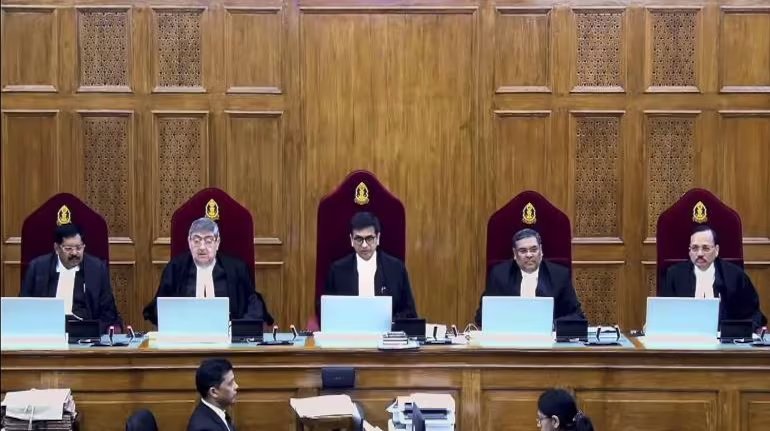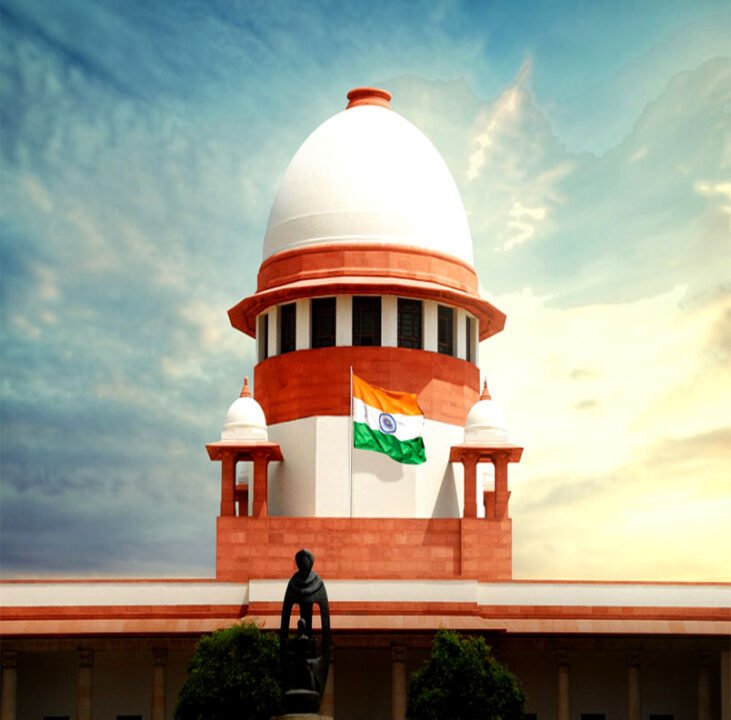NEW DELHI, Aug 12: The Supreme Court on Tuesday restrained Assam Police from taking any coercive action against senior journalist Siddharth Varadarajan in connection with an FIR lodged against him over an article on Operation Sindoor.
A bench of Justices Surya Kant and Joymalya Bagchi issued notice to the Centre on a PIL filed by the Foundation for Independent Journalism, which runs the web portal “The Wire”, challenging the constitutional validity of Section 152 of BNS.
The provision deals with the “act endangering sovereignty, unity and integrity of India” and reads, “Whoever, purposely or knowingly, by words, either spoken or written, or by signs, or by visible representation, or by electronic communication or by use of financial means, or otherwise, excites or attempts to excite, secession or armed rebellion or subversive activities, or encourages feelings of separatist activities or endangers sovereignty or unity and integrity of India; or indulges in or commits any such act shall be punished with imprisonment for life or with imprisonment which may extend to seven years, and shall also be liable to fine.”
The top court asked the members of the foundation and Varadarajan to cooperate with the case’s investigation.
Varadarajan was booked after the online news portal published an article on Operation Sindoor, under which India targeted terror infrastructure in Pakistan and Pakistan-occupied Kashmir in May in retaliation for the April 22 Pahalgam attack.
Senior advocate Nitya Ramakrishnan, appearing for the Foundation and Varadarajan, said the BNS provision was vague and broadly-worded, and created a “chilling effect” on expression, particularly affecting the right of the media to report and raise questions on the government.
The bench told her that the potential for abuse cannot be a ground to strike down a provision.
“Is the potentiality of abuse a ground sufficient to declare a law unconstitutional?… There’s a difference between implementation and power to legislate,” Justice Bagchi observed.
Justice Kant weighed in, “Any provision in penal law can be misused.”
Ramakrishnan called the provision “inherently vague” and stressed “vagueness” was recognised as a ground to strike down a provision.
She said the provision had great potential for misuse and targeting the media.
The bench then asked Solicitor General Tushar Mehta, “How can it be statically defined that what will be an act of endangering sovereignty? For instance, one can argue that political dissent can’t endanger sovereignty… Inviting legislature to define ‘endangering sovereignty’ is a big danger.”
Mehta pointed to the provision’s definition and said media cannot be treated as a separate class.
Justice Bagchi, however, said, “That’s not what is being sought. It’s about balancing the fundamental right to free speech with protection of public order.”
Justice Kant, on the other hand, observed when the offence was with respect to articles published by a news outlet or an audio-video programme, custodial interrogation might not be necessary. (PTI)













